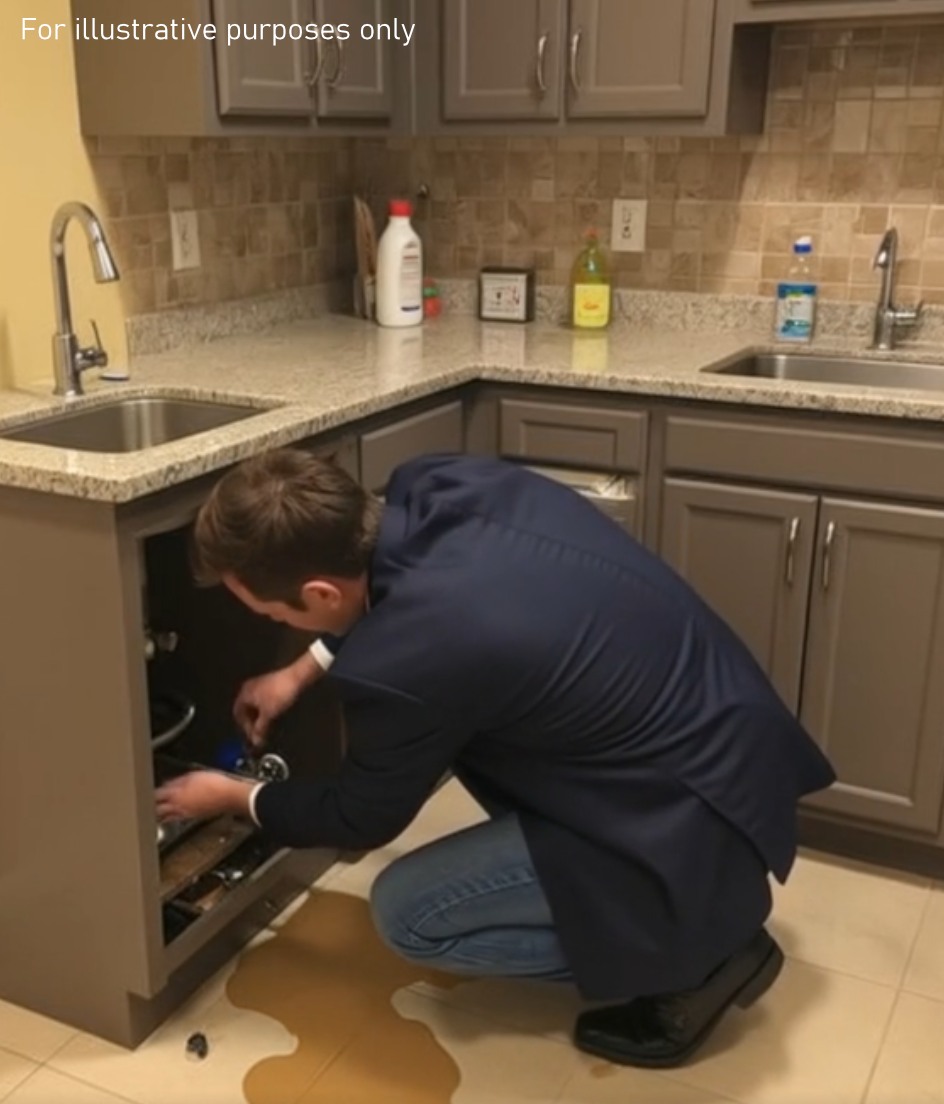In high school, my parents were the couple everyone admired. My father, with his effortless charm and strong build; my mother, with her vibrant energy and infectious laugh.
They had married before either of them turned twenty, and later were crowned prom king and queen. Each had promised the other they were meant to be together.
Growing up, I watched my mother support my father through every challenge.
During the early days of his carpentry business, when money was tight, she worked extra shifts as a waitress. When he injured his back lifting lumber, she even learned to drive his work van to keep projects on schedule.
They moved as a unit through life, from their modest three-bedroom home onward.
As my mother would say, “Your father may not have much, but his heart is bigger than any man I know.”
I believed that was enough.
But somewhere along the way, her heart changed.
She started flipping through magazines, admiring furniture we couldn’t afford. She strolled through upscale neighborhoods “just to look.” In conversations, she commented on how her friends’ husbands wore ties instead of work boots.
“Wouldn’t it be nice to have something shiny and new for once?” she’d sigh, tracing her finger along our worn table.
“Someday, Ellen,” Dad would reply with a smile, “I’ll give you the world.”
But that “someday” never came.
At her high school reunion, everything shifted. Seeing classmates with luxury vacations and sparkling jewelry, Mom’s demeanor changed. She returned home a different woman.
Two months later, she moved in with Roland.
Roland was everything Dad wasn’t: polished, well-connected, and opulent. He called himself a consultant, though it was never entirely clear what he did. His suits were from stores where the staff knew your name, and his car drew attention even before he stepped out.
Mom transformed overnight.
She quit her job at the local school and began “lunching” with other women, discussing home renovations more expensive than our entire house. She moved into Roland’s mansion with granite countertops and a full-time staff.
Dad stayed in the smaller home. Even when neighbors asked for help fixing their gates, he did it. Torn knees in his pants? He patched them himself.
And the strangest thing? Two years after Mom’s wedding, Dad still kept a photo of them on the shelf.
I asked him, “Why? Doesn’t it hurt?”
He tapped the frame gently. “Because that Ellen is still in there somewhere. She just got lost.”
Forgiving her wasn’t easy, especially seeing him eat alone by the stove or check his phone for a message that never came.
Then I met Derek.
He was a plumber, with rough, calloused hands and the warmest eyes I’d ever seen. On our first date, his hands were stained, and he apologized repeatedly.
“It was an emergency,” he said. “An elderly lady’s cellar flooded. I couldn’t leave her stranded.”
I fell for him immediately.
Derek reminded me of my father—genuine, hardworking, sincere.
When my father met him, he hugged Derek and whispered, “You’re the kind of man I always wanted for my girl.” That was at our wedding last year.
During the ceremony, Mom arrived with Roland. After ninety minutes, she left, citing a headache, but not before presenting an extravagant gift.
Weeks later, I received a chic invitation for her “Birthday Brunch with Mimosas in the Garden.”
Next to my name in elegant script: “Plus One Not Invited.”
I asked Derek, already knowing his answer, “Are we going?”
“Of course,” he said. “It’s your mother.”
At noon sharp, we arrived. Derek wore his best pants and a freshly pressed shirt. I wore a blue secondhand dress. We brought her favorite roses and a handmade cheese board.
The estate looked like a magazine feature: valet-parked cars, marble fountains, polished terraces.
As we approached the door, Derek squeezed my hand.
Mom answered. Seeing Derek, her smile faltered.
“You brought him?” she whispered, as if he were some stray, not my husband.
“Yes. He’s my husband,” I replied.
“Can we speak privately?” she asked, pulling me behind a towering azalea.
“This isn’t the place for… someone like him,” she said. “Do you realize how it looks? My daughter with a plumber? This is a house for executives, Roland’s colleagues.”
I could barely recognize the woman before me—the one who once packed Dad’s lunches with love notes inside.
“Ask him to leave,” she demanded. “No secondhand dresses. Go change.”
Rage surged in me, but Derek already understood. He kissed my cheek.
“It’s okay,” he whispered. “It’s her day. Call me later.”
I turned back to the house—and karma had already arrived.
Inside, chaos reigned. A pipe had burst under the kitchen sink. Water poured across chairs, rugs, and floors. Guests slipped, screamed, and the cake shattered. Mom’s mascara ran as she frantically called, “Someone fix this! Get a plumber!”
Roland, holding the keys, shrugged. “It’s your house. I gave you money.”
Then Derek stepped in.
“Everyone, step back,” he said, rolling up his sleeves.
Mom began to protest, but Derek cut her off: “Where’s the main shutoff?”
She pointed, speechless. Derek called my father:
“Henry? It’s Derek. At Ellen’s. Old house, new plumbing. Where’s the shutoff?”
With a twist of the valve, the water slowed—and then stopped. Silence.
Mom slumped, muttering, “I’m sorry.”
Derek gave me a reassuring glance.
Three weeks later, Mom called. She had left Roland, finally remembering what truly mattered. She was gentler now—the Ellen Dad remembered.
A week later, I returned the toolbox Derek had borrowed from my father. I walked in to see Mom kneading dough in one of Dad’s plaid shirts, laughing at something he had done.
The wedding photo still rested on the shelf. It had never moved.
And now, the woman in it had finally returned.
Life teaches us that prosperity, appearances, and glamour are fleeting. The quiet, steadfast love that rebuilds what’s broken—without recognition—is what truly matters.
